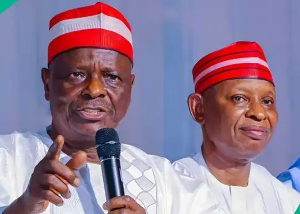Telecommunication operators in Nigeria have threatened to withdraw network support for banks’ Unstructured Supplementary Service Data (USSD), due to what they call gross misinformation on the mode of deductions for transaction fees.
USSD is done via shortcodes on mobile phones and allows bank customers to make transactions in places with limited or no internet service.
Banks notify customers of new USSD billing system
On Tuesday, June 3, 2025, banks reportedly notified their customers that the Nigerian Communications Commission (NCC) has directed them to begin charging them from their airtime rather than from customers’ accounts.
The banks stated that the telcos will now deduct charges directly from users’ airtime.
The notice partly reads:
“In line with the directive of the Nigerian Communications Commission (NCC), please be informed that effective June 3, 2025, charges for USSD banking services will no longer be deducted from your bank account.
“Going forward, these charges will be deducted directly from your mobile airtime balance by the NCC’s End-User Billing (EUB) model.”
Banks clarify new billing system
The banks disclosed that under the new billing system, each USSD session will attract a charge of N6.98 per 120 seconds, which will be billed on the customers’ mobile network operators.
According to the notice, customers will receive a constant prompt at the beginning of each session, and airtime will only be charged upon confirmation and availability of the bank to fulfil the service.
They disclosed that customers may discontinue USSD banking under the new model.
Telcos debunk new billing system
Responding, the Association of Licensed Telecom Operators of Nigeria (ALTON) disclosed that the banks’ notices were grossly misleading and deliberately designed to suit their selfish interest.
Vanguard quotes Gbenga Adebayo, ALTON Chairman, as saying that the banks are twisting agreements and distorting information to their advantage.
Adebayo said that the information was not from the NCC but a joint regulatory agreement between the NCC and the Central Bank of Nigeria, with the telcos as witnesses.
The ALTON boss disclosed that the deal was that if the banks finally cleared all USSD debts owed to the telcos by June 2, 2025, they could migrate to an end-user billing system if the migration model is transparent and agreed to by the telcos.
The new billing system is conditional
Adebayo revealed that the clause was due to the telcos’ insistence on migration processes that will not allow customers to be billed twice.
This means that a subscriber would not have their airtime deducted and bank accounts debited for the same service.
“As we speak, some of the banks have cleared their debts, but the majority are yet to do so. So, even if all the modalities of migrating to end-user billing have been perfectly carried out, the implementation cannot even begin because the banks have yet to clear the USSD debt owed to the telcos.
“Our position now is that if that is the way the banks want to treat the agreement, we may withdraw support for their USSD services. It is not a must-have. They can do without it. But, they should clear the debts as agreed,” he said.
Banks to migrate customers
A previous report by Legit.ng disclosed that Telecommunication subscribers and bank customers will soon be charged for using Unstructured Supplementary Service Data (USSD) through deductions from their airtime.
Reports say talks have advanced between commercial banks and the telcos to introduce an end-user billing system. Telecommunication subscribers and bank customers will soon be charged for using Unstructured Supplementary Service Data (USSD) through deductions from their airtime.
Reports say talks have advanced between commercial banks and the telcos to introduce an end-user billing system.
Business News of Wednesday, 4 June 2025
Source: www.legit.ng













